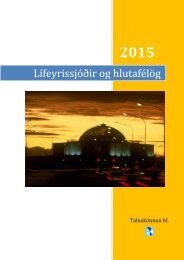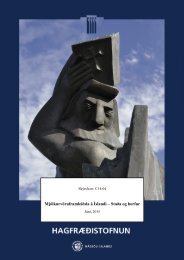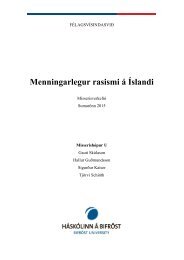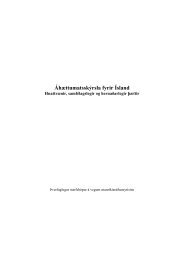You also want an ePaper? Increase the reach of your titles
YUMPU automatically turns print PDFs into web optimized ePapers that Google loves.
WORLD REPORT 2016<br />
HUMAN RIGHTS WATCH<br />
was the third person to be hanged since the government lifted an unofficial<br />
moratorium on capital punishment in 2012.<br />
In August, the Law Commission submitted a report calling for abolition of the<br />
death penalty for all but terrorism-related offenses and “waging war” against the<br />
state.<br />
Palliative Care<br />
Millions of Indians with life-limiting illnesses continue to suffer needlessly from<br />
pain and other treatable symptoms. Amendments to the Narcotic Drugs and Psychotropic<br />
Substances Act adopted in February 2014 were expected to help improve<br />
access to opioid analgesics for patients suffering from severe pain, but it<br />
took until May 2015 for the government to issue partial implementation rules;<br />
without adequate guidance, implementation of the amendments had still not<br />
begun at time of writing.<br />
India’s Foreign Policy<br />
Acknowledging expectations that India play a more prominent leadership role in<br />
global affairs, Prime Minister Modi urged diplomats to “shed old mindsets” and<br />
act proactively on issues such as climate change and threats to global peace.<br />
Despite its democratic traditions, however, India has not yet emerged as an effective<br />
proponent of human rights. For instance, in October, when India invited<br />
all 54 leaders of the African Union to a summit in New Delhi, it ignored calls by<br />
the International Criminal Court (ICC) to arrest Sudan’s president, Omar Hassan<br />
al-Bashir, who faces charges of war crimes and genocide in Darfur.<br />
India responded swiftly to provide aid and relief to Nepal after a series of deadly<br />
earthquakes there killed over 9,000 people. But relations between the neighbors<br />
soured after India criticized Nepal’s new federal constitution, which failed<br />
to address the concerns of ethnic communities living along the border with<br />
India.<br />
In June, Modi visited Bangladesh where he signed several agreements, including<br />
a border agreement that allowed the two countries to exchange small land enclaves<br />
that had left the people living there effectively stateless. India also met<br />
with Sri Lankan officials to promote post-conflict reconciliation and justice.<br />
In visits to China in May and Russia in July, Modi discussed trade agreements but<br />
failed to speak publicly on human rights concerns. However, during an August<br />
trip to the UAE, Modi visited a labor camp in Abu Dhabi, indicating concern<br />
about the welfare of migrant workers in the Gulf.<br />
Relations with Pakistan deteriorated after scheduled talks broke down in mid-<br />
2015, prompting UN Secretary-General Ban Ki-moon to call for a direct dialogue<br />
between the neighbors to de-escalate tensions.<br />
India was a weak proponent of human rights at the UN in 2015. In March, India<br />
voted in support of a Russian-backed resolution to remove benefits for same-sex<br />
partners of UN staff. India abstained on Human Rights Council resolutions on<br />
Syria, North Korea, and Ukraine, and voted against resolutions on Iran and Belarus.<br />
In July, India abstained on a UN Human Rights Council resolution that called for<br />
Israeli accountability in the 2014 Gaza War. The Indian government said it had<br />
abstained from voting because the resolution included a reference to bringing<br />
Israel before the ICC, which India considered “intrusive.”<br />
Key International Actors<br />
Several world leaders visited India in 2015, or hosted the prime minster in their<br />
capitals, evincing renewed global interest in trade and investment. Few foreign<br />
officials showed any willingness to raise human rights concerns publicly, deferring<br />
all too readily to India’s sensitivity to perceived intervention in its domestic<br />
affairs.<br />
However, at a speech in New Delhi, US President Barack Obama sent a strong<br />
message warning of the dangers of religious intolerance and urging the government<br />
to uphold religious freedom. In May, the US ambassador to India expressed<br />
concerns over the challenges faced by civil society organizations in the<br />
country and the “potentially chilling effects” of the “regulatory steps focused on<br />
NGOs.”<br />
304<br />
305










